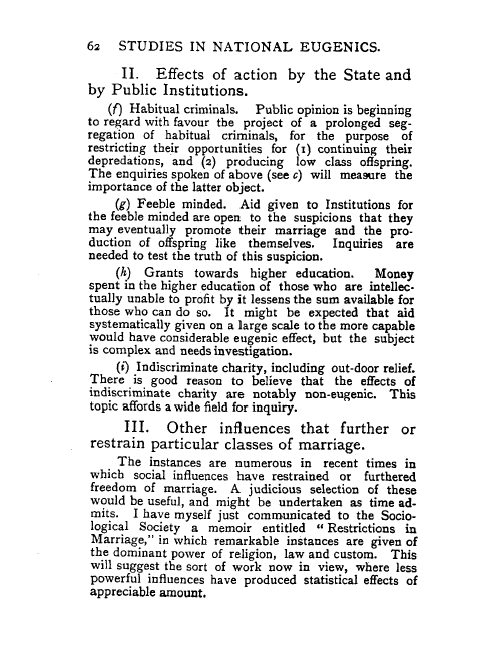62 STUDIES IN NATIONAL EUGENICS.
II. Effects of action by the State and by Public Institutions.
(f) Habitual criminals. Public opinion is beginning to regard with favour the project of a prolonged segregation of habitual criminals, for the purpose of restricting their opportunities for (i) continuing their depredations, and (2) producing low class offspring. The enquiries spoken of above (see c) will measure the importance of the latter object.
(g) Feeble minded. Aid given to Institutions for the feeble minded are open to the suspicions that they may eventually promote their marriage and the production of offspring like themselves. Inquiries are needed to test the truth of this suspicion.
(h) Grants towards higher education. Money spent in the higher education of those who are intellectually unable to profit by it lessens the sum available for those who can do so. It might be expected that aid systematically given on a large scale to the more capable would have considerable eugenic effect, but the subject is complex and needs investigation.
(ii) Indiscriminate charity, including out-door relief. There is good reason to believe that the effects of indiscriminate charity are notably non-eugenic. This topic affords a wide field for inquiry.
III. Other influences that further or restrain particular classes of marriage.
The instances are numerous in recent times in which social influences have restrained or furthered freedom of marriage. A judicious selection of these would be useful, and might be undertaken as time admits. I have myself just communicated to the Sociological Society a memoir entitled " Restrictions in Marriage," in which remarkable instances are given of the dominant power of religion, law and custom. This will suggest the sort of work now in view, where less powerful influences have produced statistical effects of appreciable amount.

